They are a fraud they don't have the proper credentials for chronic alcoholism and substance abuse. I don't recommend it to anyone else who is serious about their recovery. Please don't come here because you will not get proper care.
About AdCare
AdCare Treatment Center in Warwick, Rhode Island provides outpatient alcohol and drug rehabilitation services to adults. It’s conveniently located on Bald Hill Road, right near the Warwick Mall. They offer a standard outpatient program and an intensive outpatient program along with case management services and discharge planning.
Flexible Outpatient Treatment Services
Clients will have the option of doing the intensive outpatient program in the mornings or the evenings, making it convenient for your schedule. You’ll be at the facility multiple days a week and participate in three hour sessions.
The staff will help you better understand addiction and its causes and also teach you skills needed for long term recovery. You’ll participate in various group sessions that include wellness specialty groups and SMART recovery groups. Counselors are trained to use a variety of evidence based therapeutic approaches such as motivational interviewing, dialectical behavioral therapy and cognitive behavioral therapy.
Motivational interviewing will help improve your motivation to change your addictive behaviors. Cognitive behavioral therapy and dialectical behavioral therapy will be used to change your negative thoughts influencing your substance use disorder and learn how to regulate your emotions.
Access to Care Near Providence
Adcare Treatment Center is just a few minutes away from Providence. When you begin looking for sober activities to do, you can consider options such as walking around Roger Williams Park or enjoying local artwork at The Providence Athenaeum.
Continuing Treatment Through Alumni Services
When you complete your treatment program, you’ll have access to an alumni community and an alumni app. The alumni community will provide you opportunities to participate in virtual and in person events and receive ongoing support. You’ll stay connected to all of the alumni options you have through the app.
Facility Overview
Latest Reviews
We appreciate you taking the time to review AdCare. We’re sorry to learn about your negative experience. Due to federal privacy laws, we can't discuss specific client details publicly. However, we would love to hear from you directly to address any concerns you might have. Please contact us at AdcareClientConcerns@adcare.com.
Sincerely,
AdCare Staff
Thank you so much for taking the time out of your day to leave us a review! We’re grateful for our team and will be sure to share your message with them. Wishing you all the best moving forward!
Best,
AdCare Staff
Best,
AdCare Staff
Rehab Score
Gallery
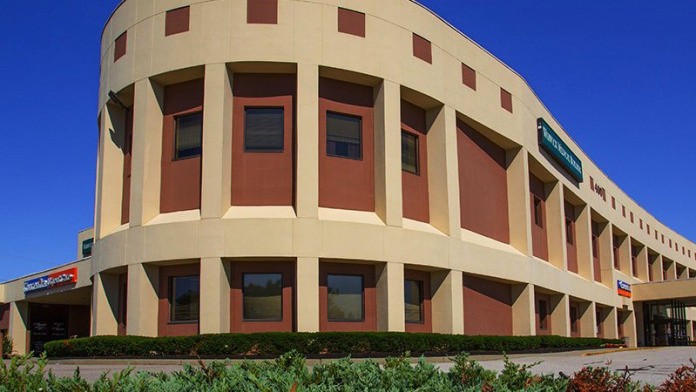
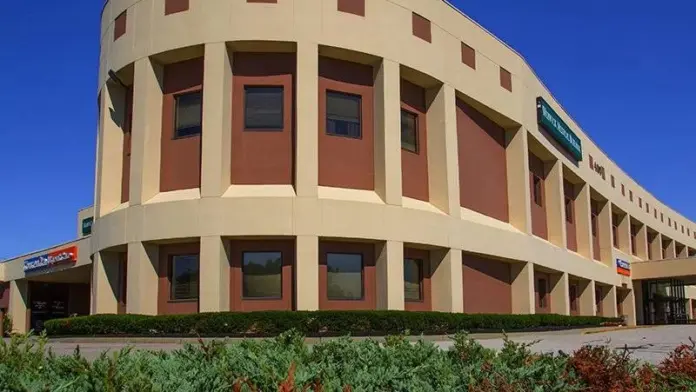
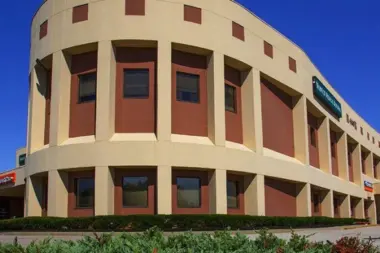
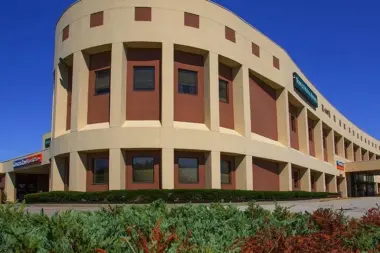
Accepted Insurance
Other Forms of Payment
Medicare is a federal program that provides health insurance for those 65 and older. It also serves people under 65 with chronic and disabling health challenges. To use Medicare for addiction treatment you need to find a program that accepts Medicare and is in network with your plan. Out of pocket costs and preauthorization requirements vary, so always check with your provider.
Medicaid is a state based program that helps lower-income individuals and families pay for healthcare. Medicaid covers addiction treatment so those enrolled can use their coverage to pay for rehab. When a program accepts Medicaid the client often pays very little or nothing out of their own pocket.
Self-pay involves paying for treatment out of your own pocket. You can use savings or credit, get a personal loan, or receive help from family and friends to fund your treatment. If you don't have insurance or your insurance plan doesn't cover a specific program, self-pay can help ensure you still get the care you need.
Private insurance refers to any kind of healthcare coverage that isn't from the state or federal government. This includes individual and family plans offered by an employer or purchased from the Insurance Marketplace. Every plan will have different requirements and out of pocket costs so be sure to get the full details before you start treatment.
Military members, veterans, and eligible dependents have access to specific insurance programs that help them get the care they need. TRICARE and VA insurance can help you access low cost or no cost addiction and mental health treatment. Programs that accept military insurance often have targeted treatment focused on the unique challenges military members, veterans, and their families face.
Addiction Treatments
Levels of Care
Outpatient Programs (OP) are for those seeking mental rehab or drug rehab, but who also stay at home every night. The main difference between outpatient treatment (OP) and intensive outpatient treatment (IOP) lies in the amount of hours the patient spends at the facility. Most of the time an outpatient program is designed for someone who has completed an inpatient stay and is looking to continue their growth in recovery. Outpatient is not meant to be the starting point, it is commonly referred to as aftercare.
Intensive Outpatient Programs (IOP) are for those who want or need a very structured treatment program but who also wish to live at home and continue with certain responsibilities (such as work or school). IOP substance abuse treatment programs vary in duration and intensity, and certain outpatient rehab centers will offer individualized treatment programs.
12 step programs may be found both in addiction treatment centers and in the community, where meetings are anonymous, free, and open to the public. These programs presume that sustained recovery depends on spiritual, psychological, and emotional growth and healing. Religious affiliation isn't required, but the 12 step recovery model is based on the belief in a higher power. Peer sponsors support participants as they use the steps to cultivate self-awareness, forgiveness, acceptance, and accountability.
Treatments
The goal of treatment for alcoholism is abstinence. Those with poor social support, poor motivation, or psychiatric disorders tend to relapse within a few years of treatment. For these people, success is measured by longer periods of abstinence, reduced use of alcohol, better health, and improved social functioning. Recovery and Maintenance are usually based on 12 step programs and AA meetings.
During drug rehab in Rhode Island, you'll participate in a variety of therapeutic interventions designed to help you break free from addiction. Common methods include cognitive behavioral therapy, music and art therapy, 12-step support, and nutrition/exercise.
Many of those suffering from addiction also suffer from mental or emotional illnesses like schizophrenia, bipolar disorder, depression, or anxiety disorders. Rehab and other substance abuse facilities treating those with a dual diagnosis or co-occurring disorder administer psychiatric treatment to address the person's mental health issue in addition to drug and alcohol rehabilitation.
Opioid rehabs specialize in supporting those recovering from opioid addiction. They treat those suffering from addiction to illegal opioids like heroin, as well as prescription drugs like oxycodone. These centers typically combine both physical as well as mental and emotional support to help stop addiction. Physical support often includes medical detox and subsequent medical support (including medication), and mental support includes in-depth therapy to address the underlying causes of addiction.
Substance rehabs focus on helping individuals recover from substance abuse, including alcohol and drug addiction (both illegal and prescription drugs). They often include the opportunity to engage in both individual as well as group therapy.
Programs
Adult rehab programs include therapies tailored to each client's specific needs, goals, and recovery progress. They are tailored to the specific challenges adult clients may face, including family and work pressures and commitments. From inpatient and residential treatment to various levels of outpatient services, there are many options available. Some facilities also help adults work through co-occurring conditions, like anxiety, that can accompany addiction.
Young adulthood can be an exciting, yet difficult, time of transition. Individuals in their late teens to mid-20s face unique stressors related to school, jobs, families, and social circles, which can lead to a rise in substance use. Rehab centers with dedicated young adult programs will include activities and amenities that cater to this age group, with an emphasis on specialized counseling, peer socialization, and ongoing aftercare.
Clinical Services
AdCare - Bald Hill Road offers a range of structured family counseling and complimentary support services. Their Family Program is designed to educate loved ones about substance dependency, as well as provide support for family members in a therapeutic, group-mentoring setting. All family programs are facilitated by knowledgeable and experienced professionals, who also provide treatment to our patients.
Group therapy is any therapeutic work that happens in a group (not one-on-one). There are a number of different group therapy modalities, including support groups, experiential therapy, psycho-education, and more. Group therapy involves treatment as well as processing interaction between group members.
In individual therapy, a patient meets one-on-one with a trained psychologist or counselor. Therapy is a pivotal part of effective substance abuse treatment, as it often covers root causes of addiction, including challenges faced by the patient in their social, family, and work/school life.
Trauma therapy addresses traumatic incidents from a client's past that are likely affecting their present-day experience. Trauma is often one of the primary triggers and potential causes of addiction, and can stem from child sexual abuse, domestic violence, having a parent with a mental illness, losing one or both parents at a young age, teenage or adult sexual assault, or any number of other factors. The purpose of trauma therapy is to allow a patient to process trauma and move through and past it, with the help of trained and compassionate mental health professionals.
During cognitive behavioral therapy in Rhode Island, your therapist helps you identify negative thought patterns and explore healthier ways to think and act. You'll learn how to develop coping strategies and change your behaviors.
During motivational interviewing, you and your therapist will collaborate to work through four key pillars of this treatment: engaging, focusing, evoking, and planning. This process will allow you to share your perspective, decide on the purpose of treatment, explore your ideas and motivations for change, and plan how you can achieve any changes you want to make.
Amenities
-
Private Setting
Staff & Accreditations
Staff

Sarah Horgan, CADC
Facility Executive Director, AdCare Rhode Island

John N. Copeland, LMHC
Director of Clinical Services
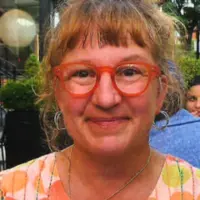
Jody Eyre, MS, LMFT
Director, Warwick Outpatient

Anne Thorpe, BS, RN
Director of Nursing, Adcare Rhode Island
Accreditations

The Joint Commission, formerly known as JCAHO, is a nonprofit organization that accredits rehab organizations and programs. Founded in 1951, the Joint Commision's mission is to improve the quality of patient care and demonstrating the quality of patient care.
Joint Commission Accreditation: Yes
Contact Information
400 Bald Hill Road
Warwick, RI 02886







